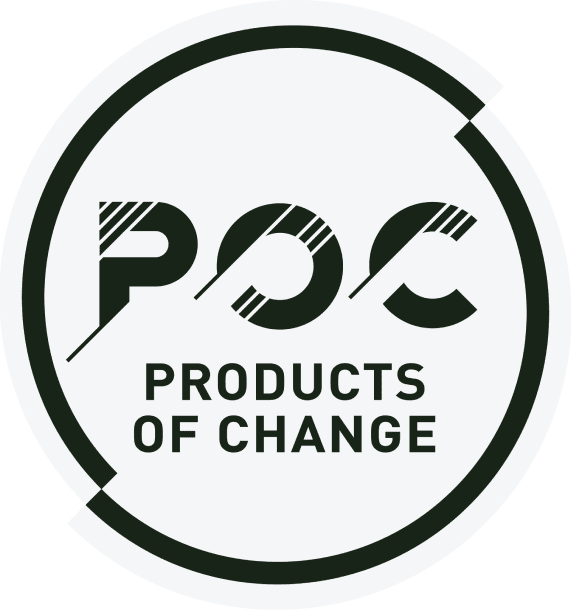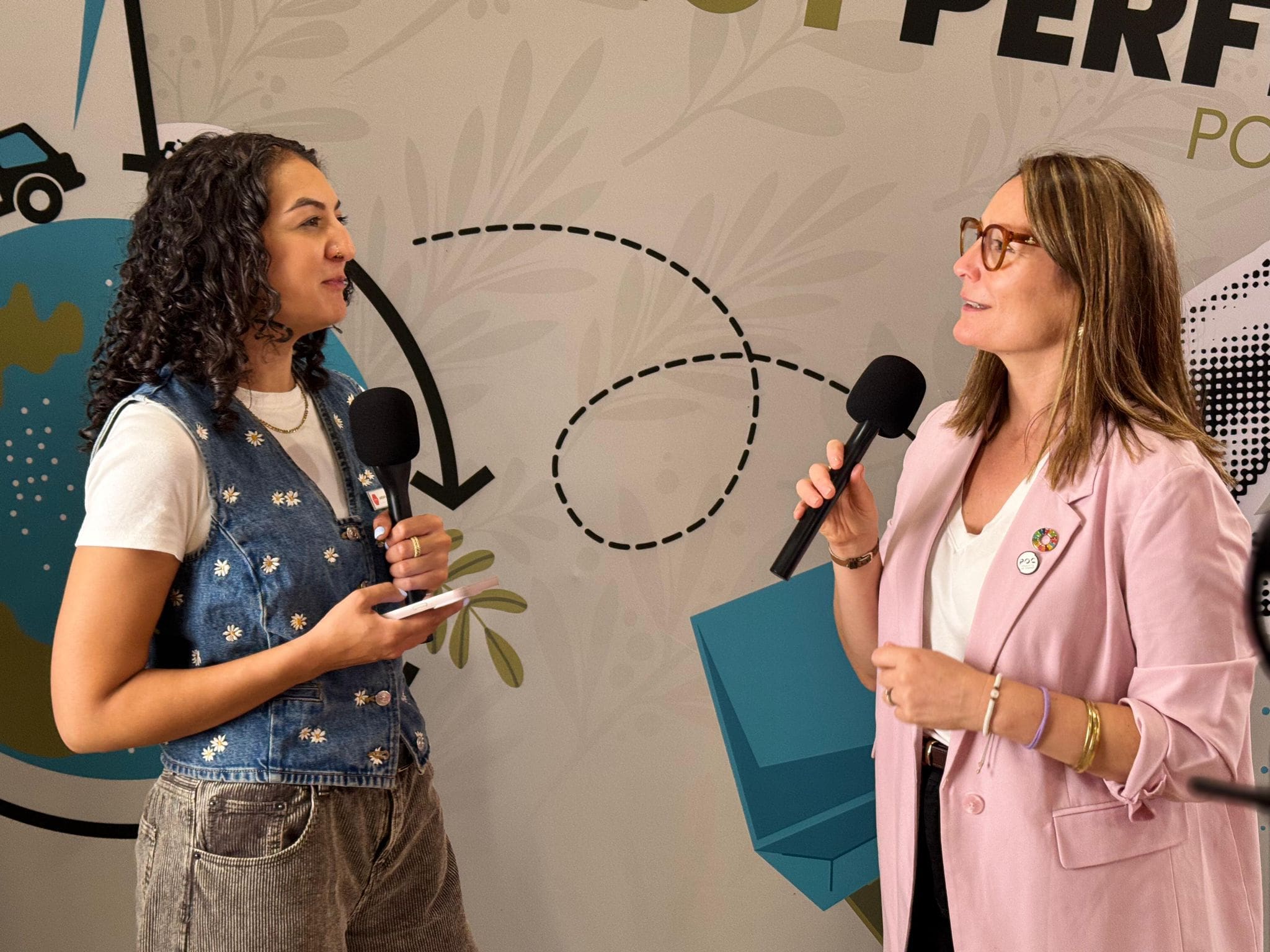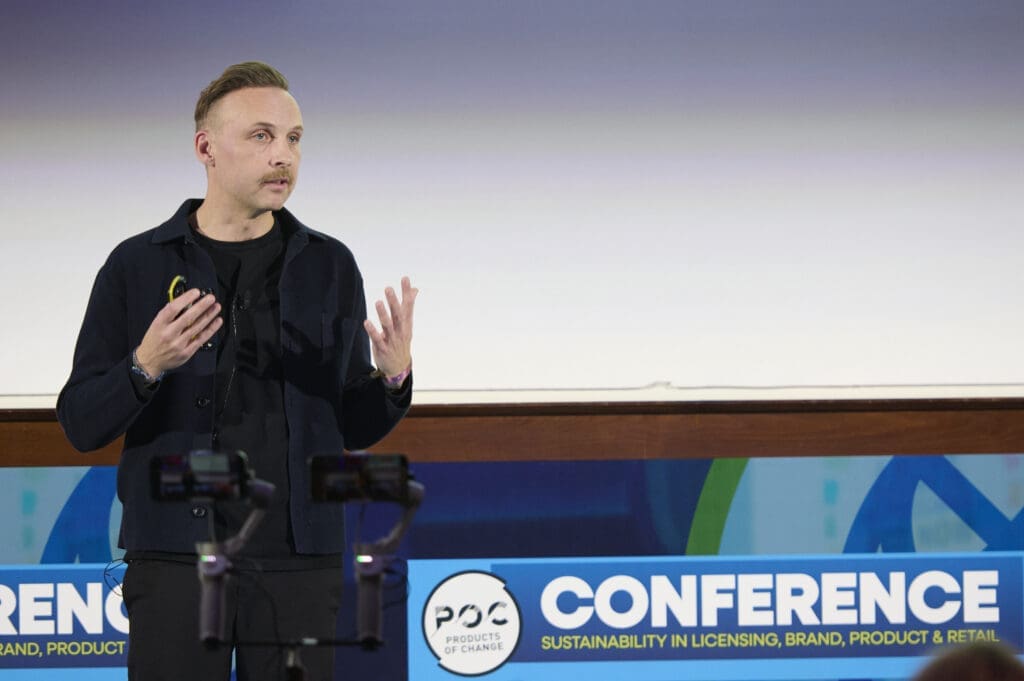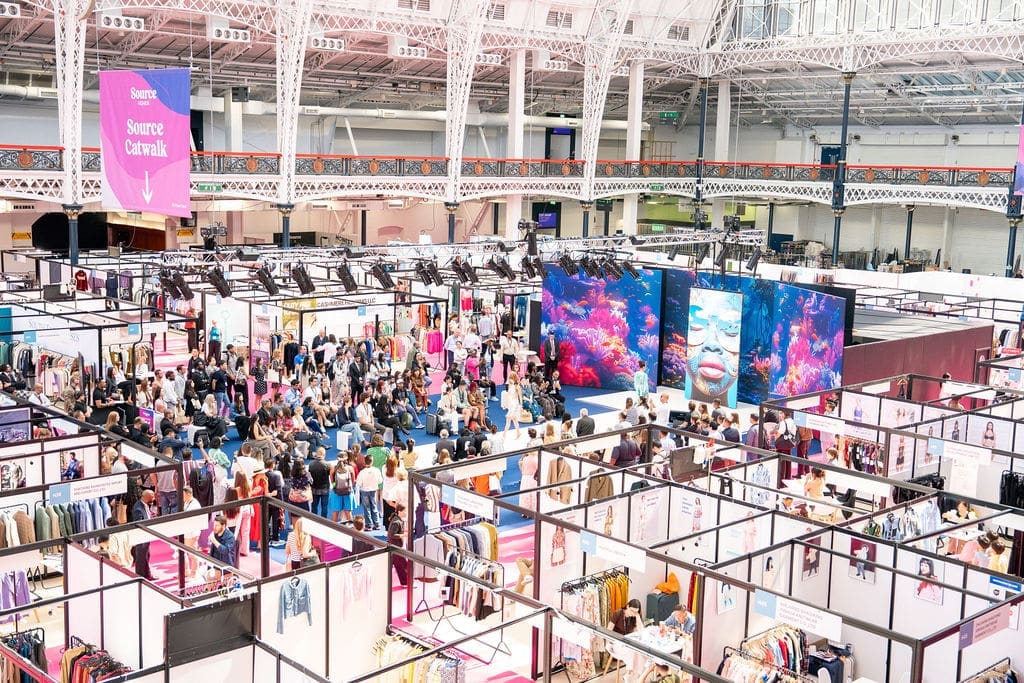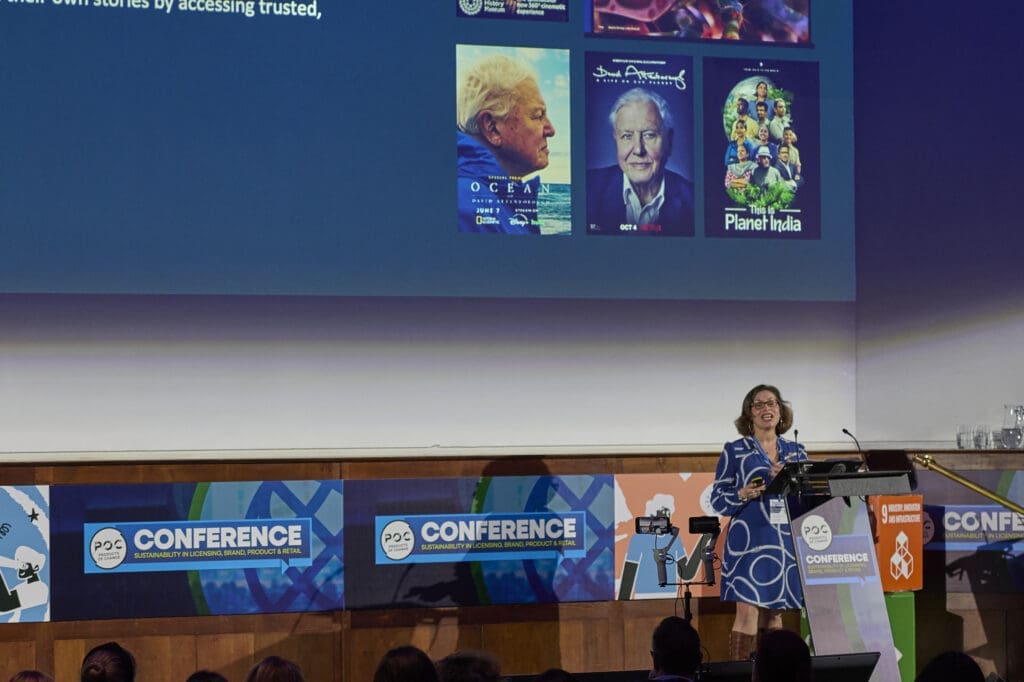Source Fashion retuned to Olympia London earlier this month, where POC’s founder and CEO, Helena Mansell-Stopher took to the stage to join an illustrious panel on the conversation of all things business case for sustainability.
An event spotlighting responsible sourcing in the fashion industry, Source Fashion 2025 saw record-breaking visitor numbers and a 51% year-on-year increase in total footfall this year.
Joined by fellow panellists Simon Platts, founder of SP&KO Consultancy; Nick Reed, founder of Neem London; and Charlie Jones, founder of Phase London, Helena discussed how the fashion industry can challenge the volume-equals-profit mindset and build a credible, commercially viable case for post-growth, focusing on less, but better.
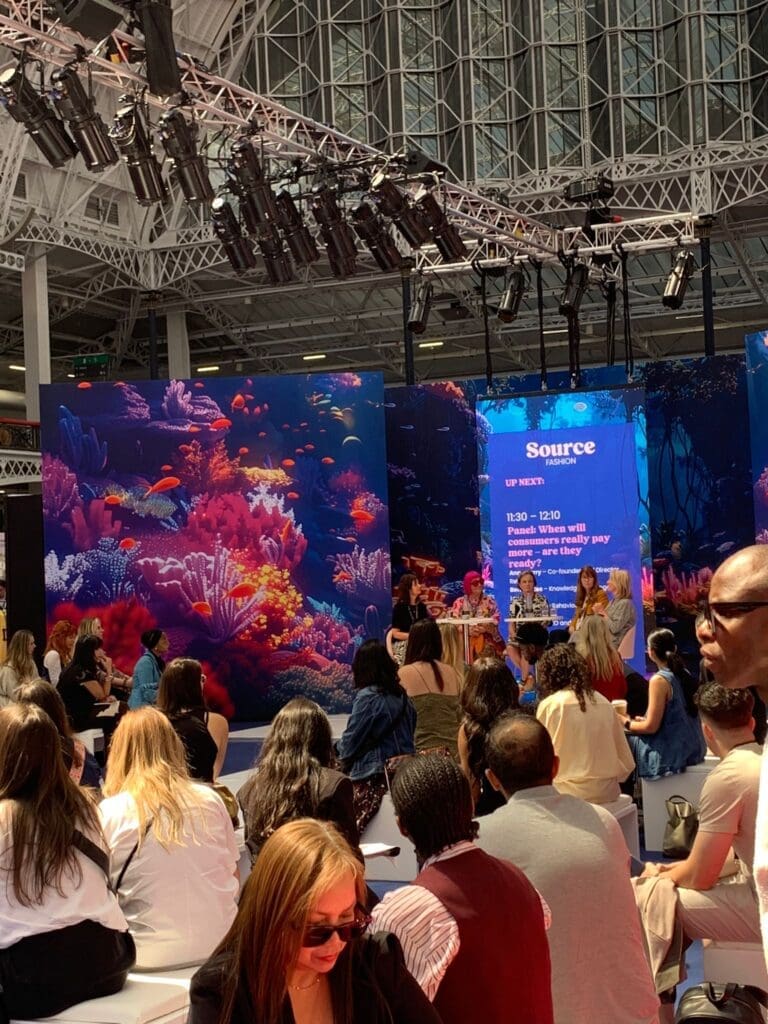
Helena gives her account of the day and the conversation that was had on the panel”
“It was my first year attending Source Fashion – and wow! I was truly amazed by the level of conversation, the innovations, and the incredible catwalks at the show.
“I felt so lucky to be invited to join a panel hosted by the brilliant Simon Platz, co-founder of SP&KO consultancy. Simon has had such an impressive career, and it was a real privilege to share the stage with him.
“We really got into the details of the industry. I sat alongside Nick Reed, founder of Neem London, and Charlie Jones, managing director of Phase London. It was fascinating to learn what the next generation of fashion companies are doing. Charlie, for example, started his business while still at school – he’s truly disrupting the industry. It made me think about the POC community and some of the innovative brands we work with, like Teemill.
“Interestingly, both Charlie and the brothers who founded Teemill, Mart and Rob, come from engineering backgrounds. They approach fashion through a solutions lens rather than a purely fashion-focused one. That’s such a key differentiator. It shows that today’s most forward-thinking fashion companies are prioritising efficiency, reduced impact, and circularity – not just producing clothes for profit. Of course, making money is important, but there are so many different ways to achieve it.
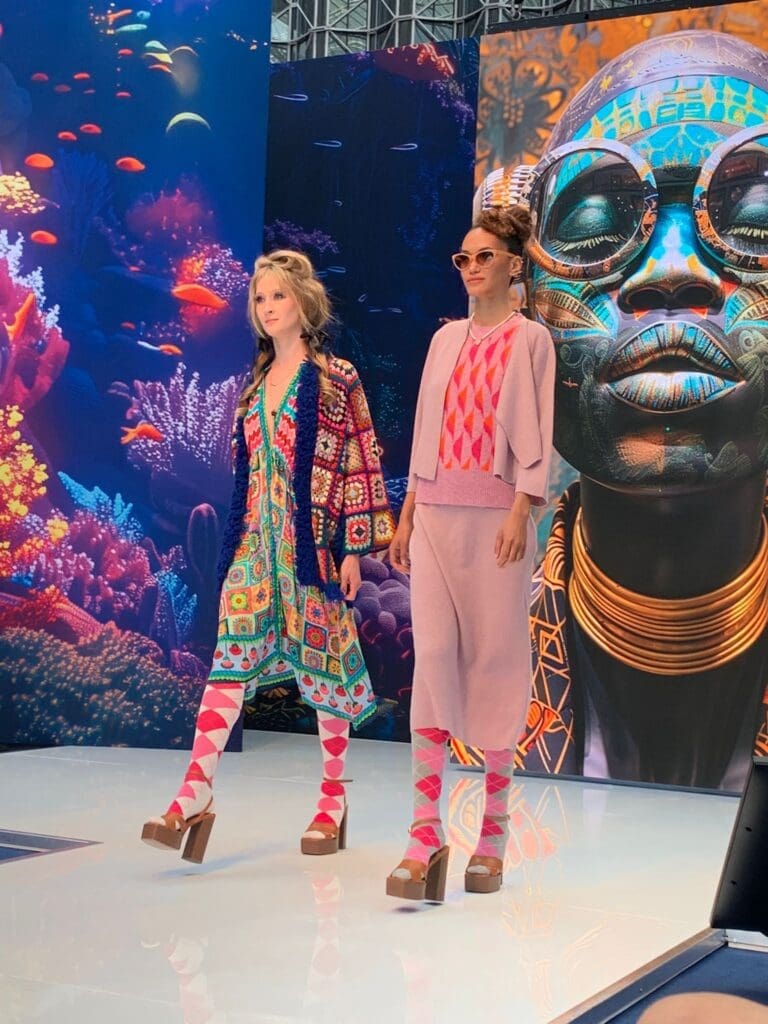
“We had a really inspiring discussion about near-shoring, product offerings, and the opportunities to rethink traditional business models. Rather than focusing on mass volumes, the conversation shifted to more considered approaches – for example, Charlie produces 30% less than his orders to ensure a 98% sell-through rate, keeping his audience wanting more. There’s a powerful lesson in that: wouldn’t we rather have customers eager for our products, creating higher resale value and less waste?
“I also loved hearing about UK-based factories like 23 Foxes and Fashion Enter, who are disrupting the industry with competitive pricing and innovative local manufacturing. With new waste legislation on the horizon, it’s clear that business operations will need to evolve – and that, to me, is incredibly exciting.
“Overall, the panel discussion and the many conversations throughout the show revealed a real appetite for doing things differently. There’s a growing recognition that the old ways of working are outdated, and that shift is so energising to see.”
The show remained busy until the end, as buyers, designers, and sourcing professionals from leading fashion brands including LVMH, Harrods, Burberry, Victoria Beckham, Temperley, Bella Freud, Lyle & Scott, French Connection, John Lewis, AllSaints, ASOS, Joseph, Marks & Spencer, Next, New Look, Primark, River Island, Mango, Joules, JoJo Maman Bébé, Sosander, Gigi & Olive, Lucy & Yak, Yumi International, Damson Madder, Godske, Jaded London, Tottenham Hotspur and Jermyn Street Design, made the most of their last opportunities to connect with global manufacturers, explore sustainable innovations, and engage in critical industry conversations.
We look forward to next year as the conversations continue to progress and the innovations get bolder and brought into the new norm.
